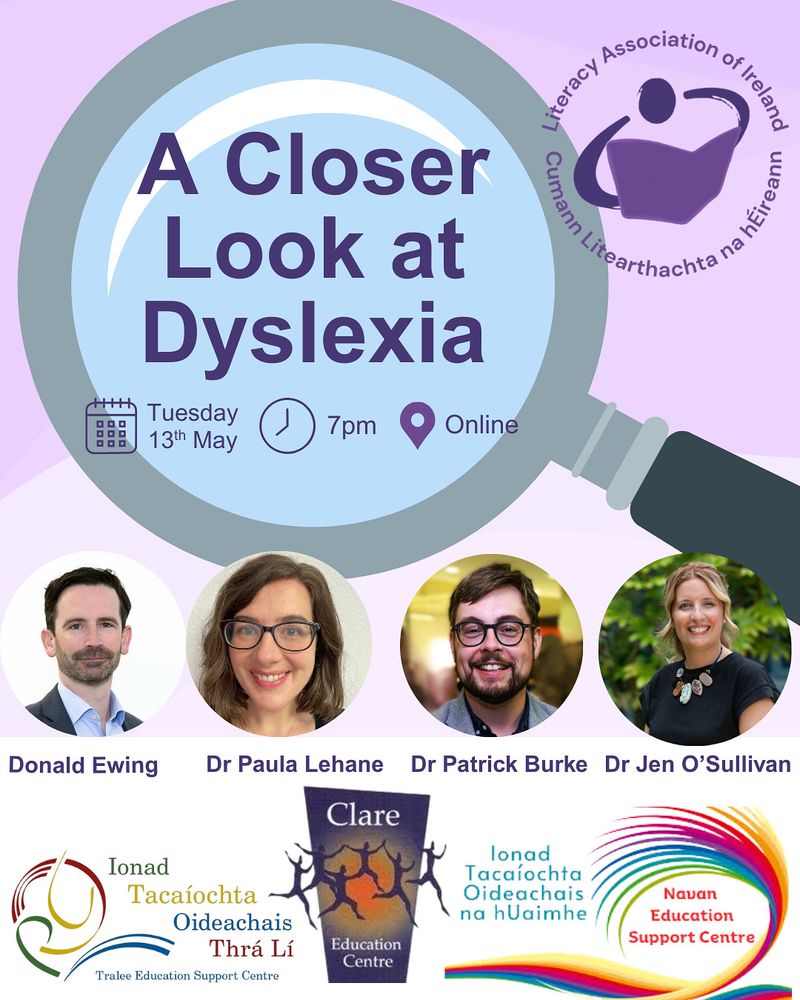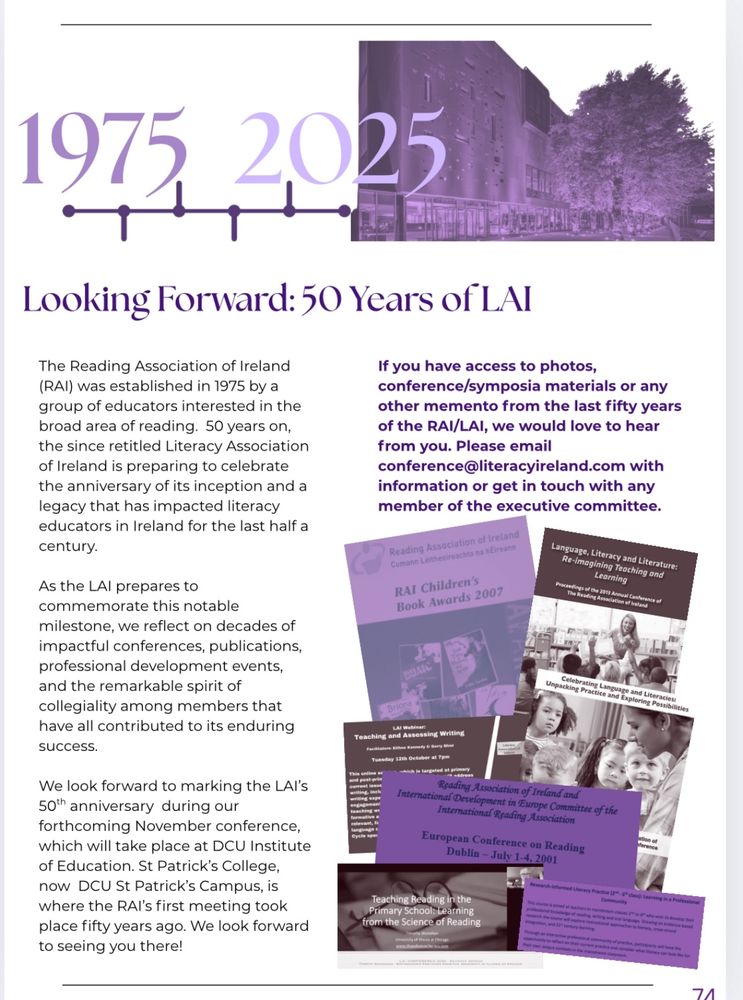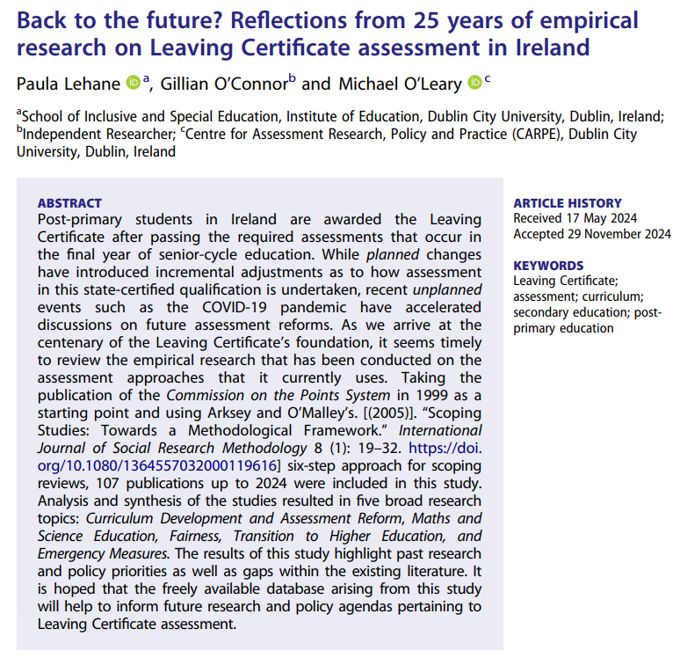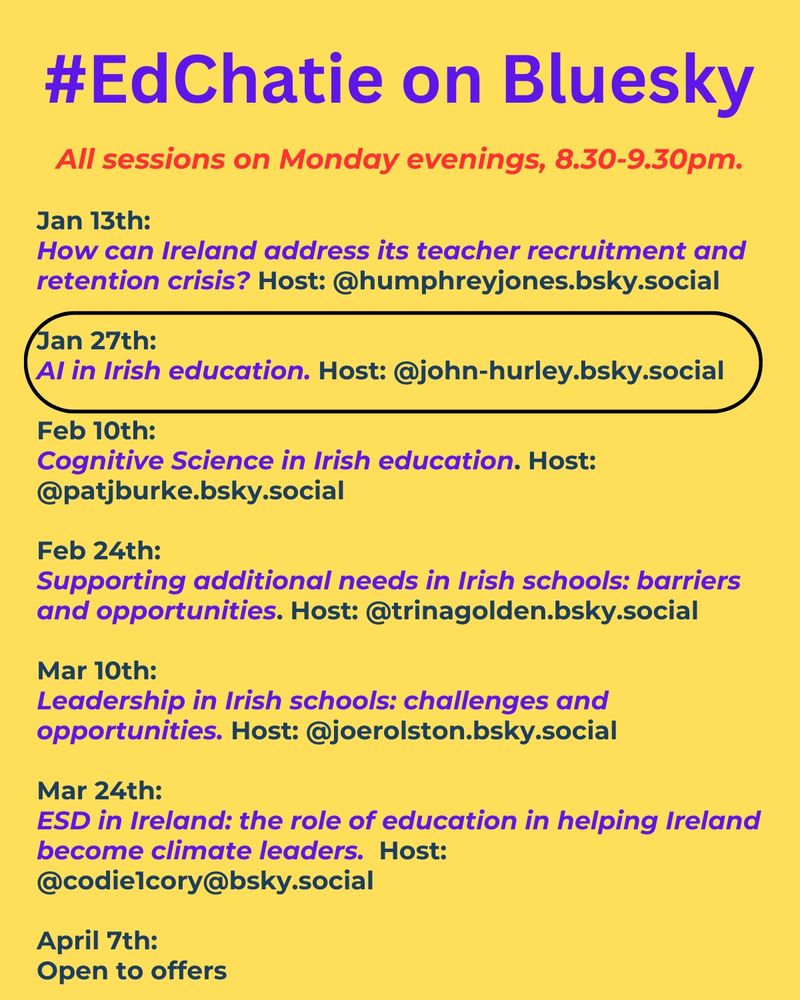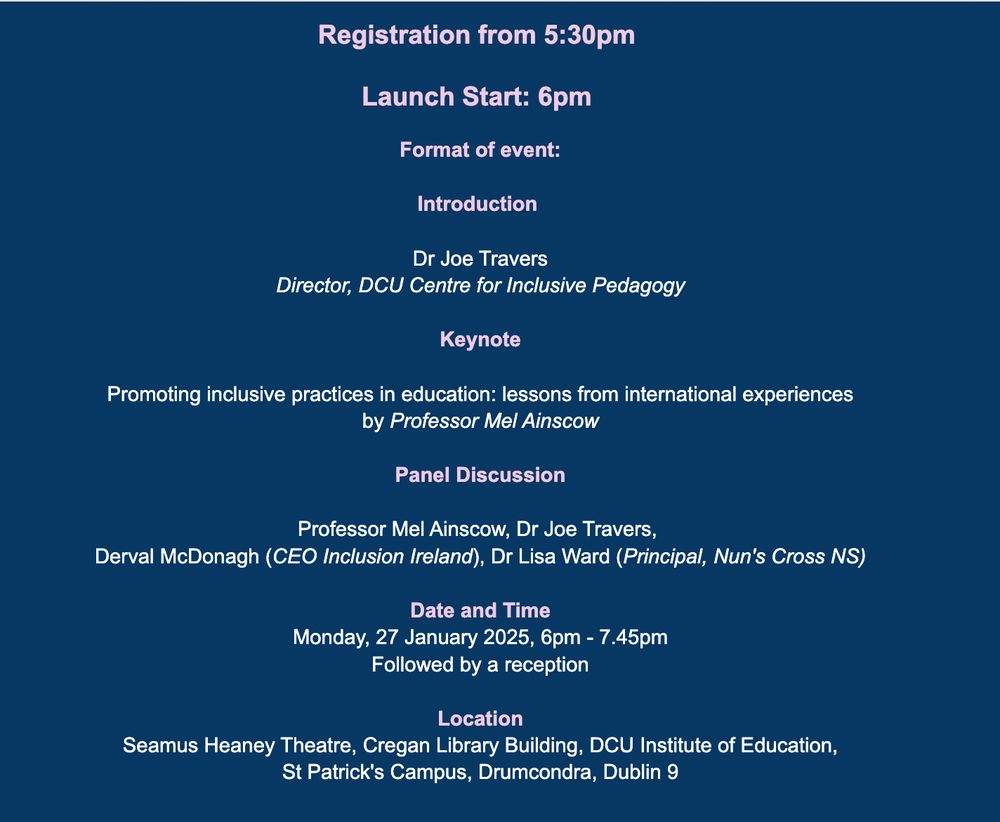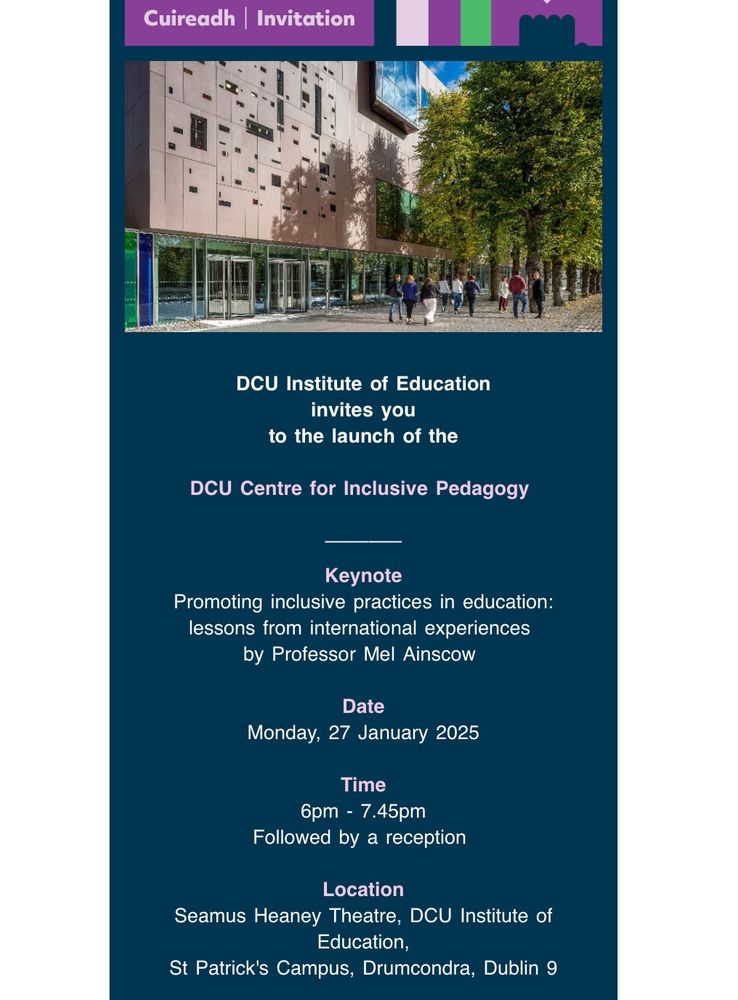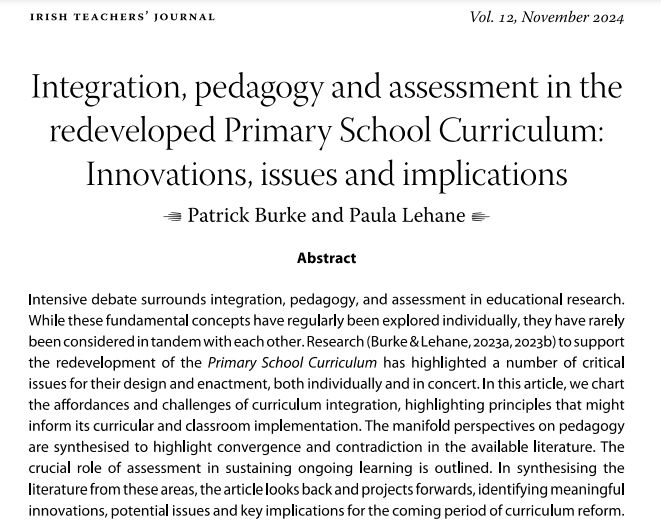Paula Lehane
@paulalehane.bsky.social
590 followers
340 following
18 posts
Assistant Professor in Inclusive and Special Education at Dublin City University's Institute of Education.
Posts
Media
Videos
Starter Packs
Reposted by Paula Lehane
Paula Lehane
@paulalehane.bsky.social
· May 13
Reposted by Paula Lehane
Reposted by Paula Lehane
Reposted by Paula Lehane
Paula Lehane
@paulalehane.bsky.social
· Apr 2
Paula Lehane
@paulalehane.bsky.social
· Feb 20

Back to the future? Reflections from 25 years of empirical research on Leaving Certificate assessment in Ireland
Post-primary students in Ireland are awarded the Leaving Certificate after passing the required assessments that occur in the final year of senior-cycle education. While planned changes have introd...
doi.org
Paula Lehane
@paulalehane.bsky.social
· Feb 20
CARPE Database of Empirical Research on Assessment for the Leaving Certificate in Ireland (May 2024)
This is the download site for the CARPE Database of Empirical Research on Leaving Certificate Assessment in Ireland (May 2024). We hope that this database will act as a guide and resource for any futu...
doi.org
Paula Lehane
@paulalehane.bsky.social
· Feb 20
Paula Lehane
@paulalehane.bsky.social
· Feb 20
Paula Lehane
@paulalehane.bsky.social
· Feb 20
Paula Lehane
@paulalehane.bsky.social
· Feb 20
Paula Lehane
@paulalehane.bsky.social
· Feb 20
Paula Lehane
@paulalehane.bsky.social
· Feb 20
Paula Lehane
@paulalehane.bsky.social
· Feb 20
Paula Lehane
@paulalehane.bsky.social
· Feb 20
Reposted by Paula Lehane
Paula Lehane
@paulalehane.bsky.social
· Feb 10
Reposted by Paula Lehane
Reposted by Paula Lehane
Reposted by Paula Lehane
Reposted by Paula Lehane
Reposted by Paula Lehane

